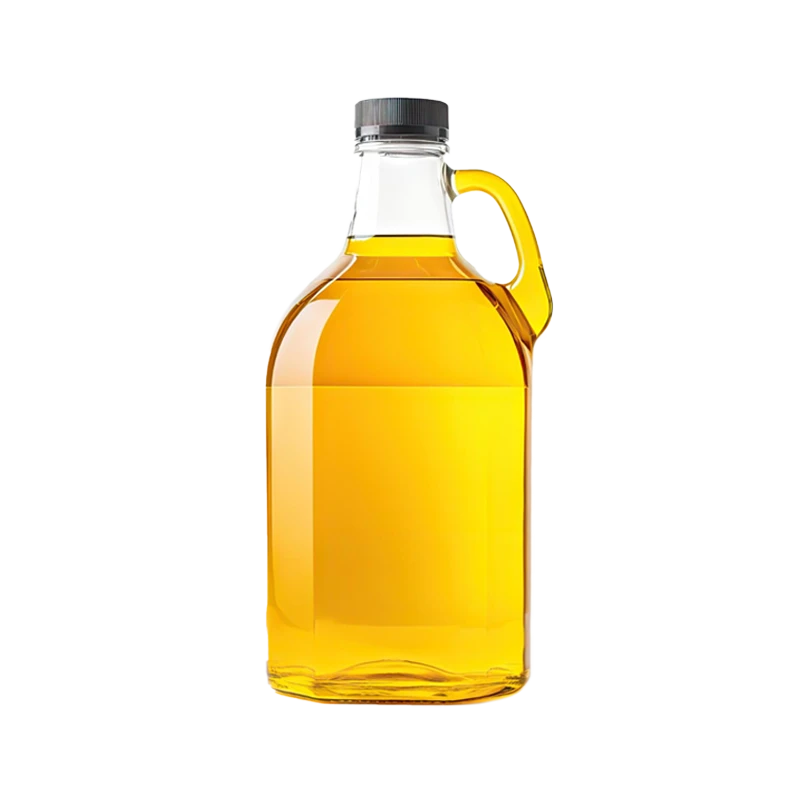Flaxseed Oil — Nutrients, Health Benefits, And Shopping Tips

Written by Listonic Team
Last update on September 3, 2024
Nutrition facts
Nutrition facts
Amount per 100 g
Calories
🔥 884 kcal
| Nutrition per: 100 g | Value | % Daily Value* |
|---|---|---|
| Carbs | 0 g | - |
| Fiber | 0 g | - |
| Sugars | 0 g | - |
| Glycemic Index | 0 | - |
| Protein | 0 g | - |
| Sodium | 0 mg | - |
| Total Fat | 100 g | 128.21% |
*The % of Daily Value (DV) tells you how much a nutrient in a serving of food contributes to a daily diet. 2,000 calories a day is used for general nutrition advice.
Did you know?
Health benefits
- Rich in omega-3 fatty acids (alpha-linolenic acid), which support heart health, reduce inflammation, and improve brain function.
- Contains lignans, which have antioxidant and anti-cancer properties, helping to protect the body from free radicals and reduce the risk of certain cancers.
- Supports digestive health by promoting regular bowel movements and reducing constipation due to its mild laxative effect.
- May improve skin health by providing essential fatty acids that help maintain skin hydration and reduce inflammation.
- Supports overall health by providing essential nutrients that contribute to a balanced diet and well-being.
Health risks
- Potential for digestive discomfort such as bloating, gas, or diarrhea, particularly when consumed in large quantities or by individuals not accustomed to high-fat foods.
- Risk of oxidation as flaxseed oil is prone to becoming rancid quickly, which can produce harmful compounds that may contribute to long-term health risks.
- Potential for allergic reactions in some individuals, causing symptoms like itching, swelling, or difficulty breathing.
- Interaction with blood thinners due to the high omega-3 fatty acid content, which can have an anticoagulant effect and potentially increase the risk of bleeding when combined with blood-thinning medications.
How to choose flaxseed oil
When choosing flaxseed oil, it should be stored in a dark, opaque bottle to protect it from light damage. The oil should have a mild, nutty flavor. Check that it's cold-pressed and organic for maximum health benefits.
Avoid flaxseed oil that smells rancid or bitter, as these are signs it has oxidized. Quality flaxseed oil should be fresh-tasting and not overpower the flavors of the foods it's paired with.

How to store flaxseed oil
Flaxseed oil should be kept in the refrigerator to stay fresh. Store it in a dark, airtight bottle to prevent oxidation. Properly stored, flaxseed oil can last up to two months.
Exposure to light, heat, and air can cause flaxseed oil to become rancid. Keeping it away from direct sunlight and heat sources is essential. Ensuring the bottle is tightly sealed will help maintain its nutritional value and flavor.
✅ Extra Tip
How long does it last?
Flaxseed oil can last for 6-12 months when stored in a cool, dark place. Once opened, it should be refrigerated and used within 6-8 weeks for the best quality. Always check for any off smells or changes in texture before using.
What to do with leftovers?
Leftover flaxseed oil can be used in a variety of culinary and non-culinary ways. In the kitchen, it’s best used as a finishing oil, drizzled over salads, smoothies, or yogurt, since heating it can degrade its beneficial omega-3 fatty acids. It can also be mixed into salad dressings or blended into dips and spreads for a nutritional boost.
Beyond cooking, flaxseed oil has several uses in personal care and household applications. It’s commonly used in DIY beauty treatments; for instance, it can be applied directly to the skin as a moisturizer or added to homemade face masks to help soothe and hydrate the skin. Flaxseed oil can also be used as a hair treatment to add shine and reduce frizz. Additionally, it’s used in wood finishing as a natural, non-toxic oil for treating cutting boards, wooden utensils, and furniture, helping to protect and preserve the wood.
👨⚕️️ Medical disclaimer
Discover products from other categories
Listonic Team
Fact-checked
Our editorial team checked this article to make sure it was accurate at the time of publishing it.
Get the top-rated shopping list app on your phone!







